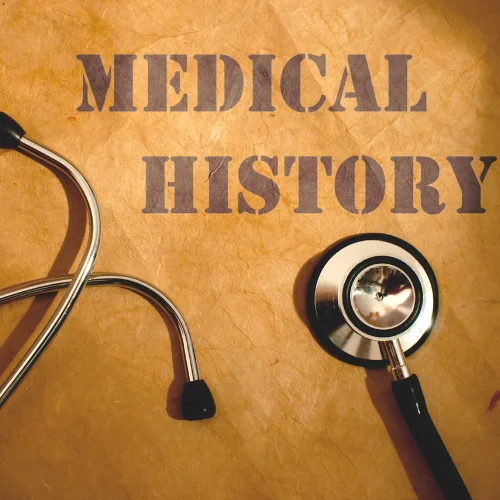
What Is Medical Coding?
Medical Coding is a Process of Converting medical data into codes to make the billing Process easier for the Re-imbursement of Payments from the Insurance to the Medical Facility (Physician/Hospital) .
History
The very first time Medical Coding system reported to began during the 17th Century in England. With the Time, This system led to International Classification of Diseases, which is now in its 10th edition, also abbreviated as the ICD-10 -CM/PCS. In ICD 9 only 13,000 codes and The “other” and, “non- specified” codes were used for numerous diseases, conditions, illnesses, ailments and injuries but the ICD-10 includes 68,000 codes to eliminate a lot of “other” and, “non- specified” codes to improve the Coding & Reimbursement process.


Why Medical Coding Is Vital In The Health Care Industry:
Health Care Industry depends mainly on Two pillars: Medical Service Providers & Administrative Employees.
- Medical Service Providers: Physicians & Nurses in Clinics/Hospitals.
- Administrative Employees: Physician Practice Managers, Medical Transcribers, Medical Coders, Medical Billers, Medical auditors & Healthcare compliance officers.
How Medical Coding Works In The Health Care Industry?
USA mandates a system of insurance to every citizen of their country to secure their health effectively. Now, Suppose, a patient, having an insurance from X Company, coming to see a Physician(Doctor} either in a Hospital facility or in a Physicians’ Private clinic & Physician evaluates the health condition of a patient then provides a necessary treatment to them. And At the time of discharge, when Physician asks for fees then instead of paying fees, patient asks Physician to collect fees directly from patients’ insurance company.
So USA came up with this system through which Physicians can get reimbursed their payments from the Insurance company. The Process of this system starts just after the completion of the necessary treatment.
Steps To Get Reimbursement From The Insurance Company:
1) Record
The physician records the Procedure that is performed to treat the respective disease of a patient.
2) Transcriber
Then Transcriber converts this recorded file into text files.
3) Medical Coding
Here comes the role of Medical Coders, Medical coder converts Lengthy and complicated text files into easy alpha-numerical codes to make the billing process easier.
4) Medical Billing
After that, Medical billers arrange & calculate the cost value of all the assigned codes for a procedure performed by a Physician/hospital on a patient.
5) Auditing
At this stage, Medical Auditors perform auditing on the files coded by the coders to check if the files were coded correctly following the Coding guidelines provided by the AAPC. (Two types of Auditors: Hospital facility-based Auditors or Insurance company-based auditors.
6) Denial & Appeal
Finally Insurance company pays respective dues to the Physician. If Insurance finds any miscoding, Insurance declines to pay & sends back to recode the files correctly.
7) Payment
Then Coder recodes the file & physician resends it to the insurance for the reimbursement claim.
Visions And Innovations In Medical Coding
Elevatehealthcarercm provides insights into the future of medical coding, focusing on key areas of evolution and innovation. Here’s a some key visions for medical coding as outlined by elevationhealthcarercm:
1) Integration With AI And Machine Learning
AI and machine learning are set to revolutionize medical coding by automating routine tasks, improving accuracy, and enhancing productivity. These technologies can assist in coding by analyzing clinical notes and extracting relevant information to suggest appropriate codes.
2) Enhanced Data Analytics
As healthcare data becomes more complex, there will be a greater emphasis on using advanced analytics to interpret coding data. This will help in identifying trends, improving patient outcomes, and optimizing healthcare delivery.
3) Expansion of Coding Systems
The scope of coding systems may expand to include more granular details about patient care, treatment outcomes, and social determinants of health. This will provide a more comprehensive view of patient health and treatment efficacy.
4) Greater Focus on Compliance and Accuracy
With increasing scrutiny from regulatory bodies, there will be a stronger focus on ensuring compliance with coding standards and accuracy. This will involve more rigorous audits, training, and quality control measures.
Essential Principles of Medical Coding
Medical coding plays a crucial role in the healthcare system, and the values associated with it are essential for ensuring high-quality care and efficient administrative processes. Here are some key values of medical coding:
1) Accuracy
Precise coding is vital to reflect the exact nature of the medical services provided. Accurate coding ensures correct billing, proper reimbursement, and effective patient care documentation.
2) Compliance
Adhering to coding guidelines and regulations is fundamental. This includes following the rules set by entities such as the ICD (International Classification of Diseases), CPT (Current Procedural Terminology), and HCPCS (Healthcare Common Procedure Coding System).
3) Confidentiality
Protecting patient information in accordance with privacy laws such as HIPAA (Health Insurance Portability and Accountability Act). Medical coders must handle sensitive information with care to ensure confidentiality.
4) Detail-Oriented
Medical coding requires a meticulous approach to detail. Coders must be thorough in interpreting medical records and assigning the correct codes to ensure accurate billing and documentation.

Overview
In today’s dynamic healthcare landscape, it’s crucial for organizations to maintain a clear, concise, and comprehensive view of each patient’s health and medical status. Accurate coding plays a pivotal role in achieving this clarity, ensuring that patient records are precise, care teams have timely access to vital information, and the revenue cycle remains robust and effective.
However, inaccurate coding practices are a leading cause of claim denials, which can significantly impact reimbursement rates. With the upcoming adoption of ICD-11, we anticipate a rise in code complexity and volume, further compounded by ongoing updates from the Centers for Medicare & Medicaid Services (CMS).
To address these challenges, embracing technological advancements is key. At elevationhealthcarercm , we harness the power of cutting-edge technology to enhance the efficacy and efficiency of medical coding. Our solutions are designed to minimize costs, reduce processing time, lower error margins, and streamline efforts, delivering precise and timely expertise in near-real-time. With our support, healthcare organizations can navigate the complexities of coding with confidence, ensuring optimal outcomes for both patient care and financial health.
Our Comprehensive Medical Coding Services

EMS Coding
Learn the essentials of EMS coding with accurate documentation, billing procedures, and compliance tips to ensure optimal reimbursement and adherence to industry standards in emergency medical services.

E&M Coding
Explore ENM coding essentials: documentation, billing practices, and compliance guidelines. Enhance your understanding of Evaluation and Management coding for accurate claims and adherence to healthcare standards.

Surgery Coding
Master surgery coding with essential insights into accurate documentation, billing practices, and compliance. Enhance your skills in surgical coding to ensure precise claims and adherence to healthcare standards.

Facility Coding
Learn the fundamentals of facility coding, including accurate documentation, billing processes, and compliance. Improve your skills to ensure precise claims and adherence to standards in healthcare facilities.

Anesthesia Coding
Understand anesthesia coding essentials with insights into accurate documentation, billing practices, and compliance. Enhance your expertise to ensure precise claims and adherence to standards in anesthesia service
